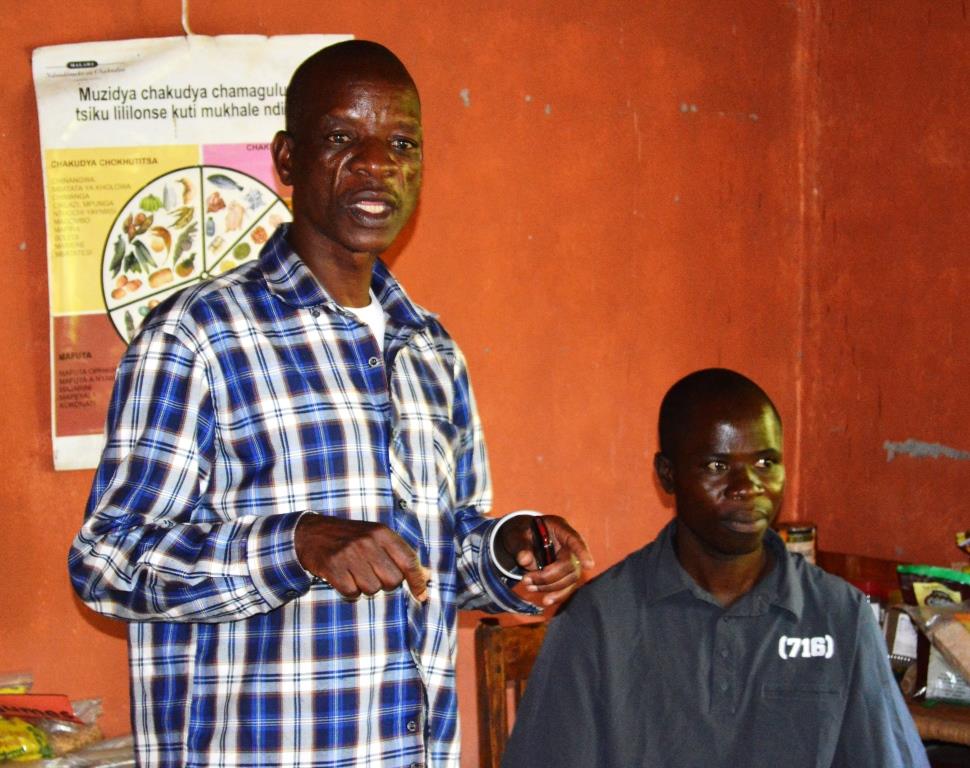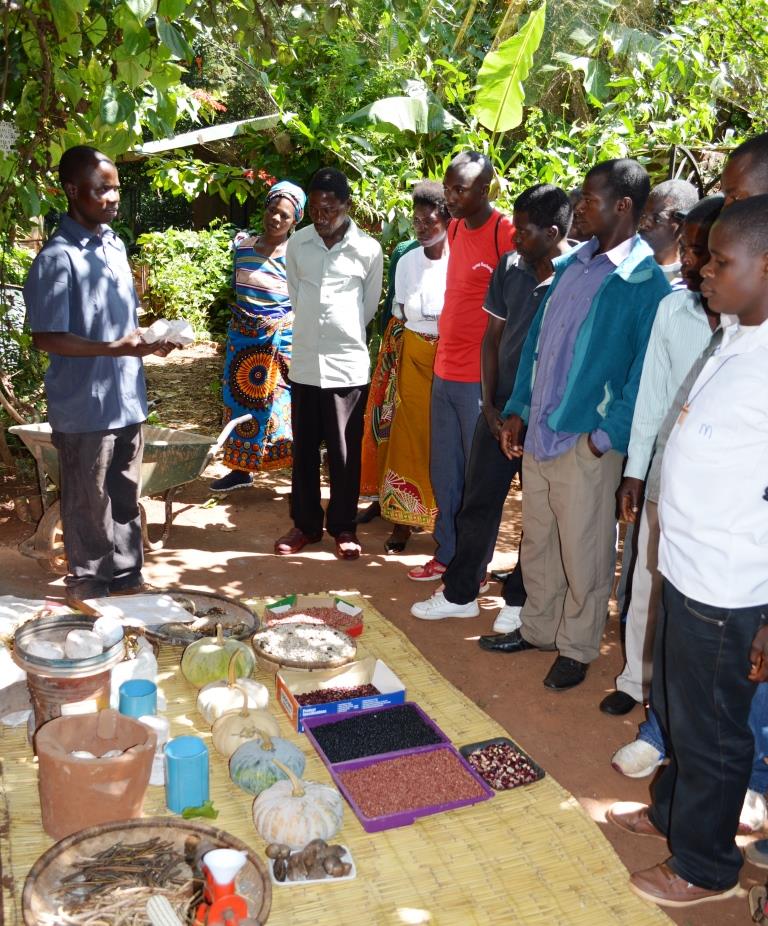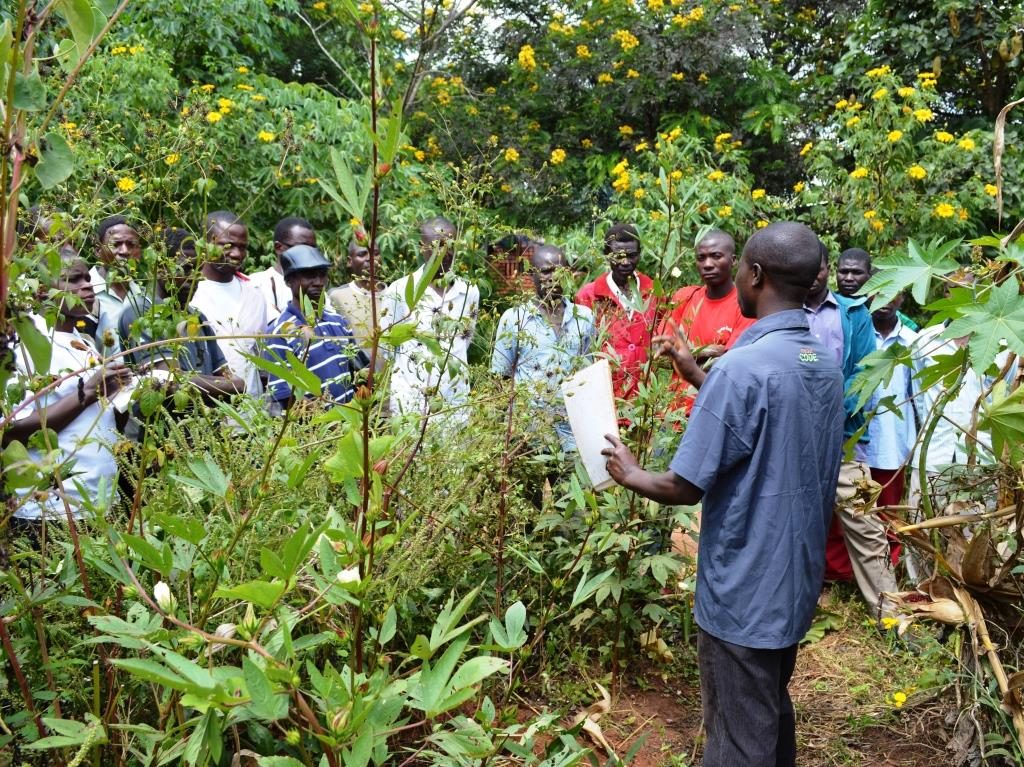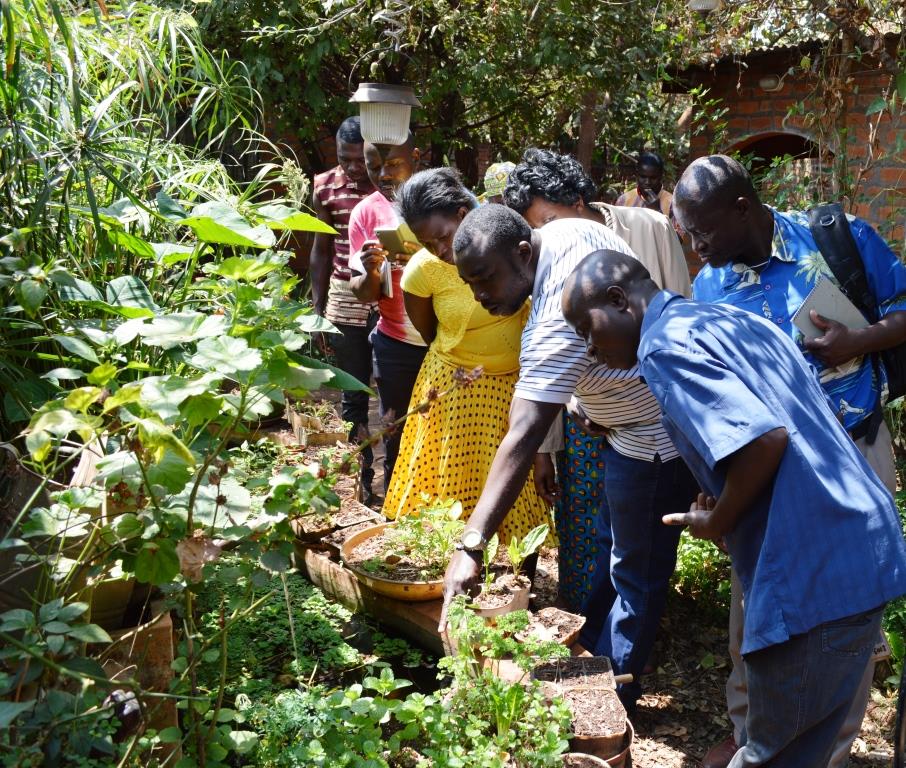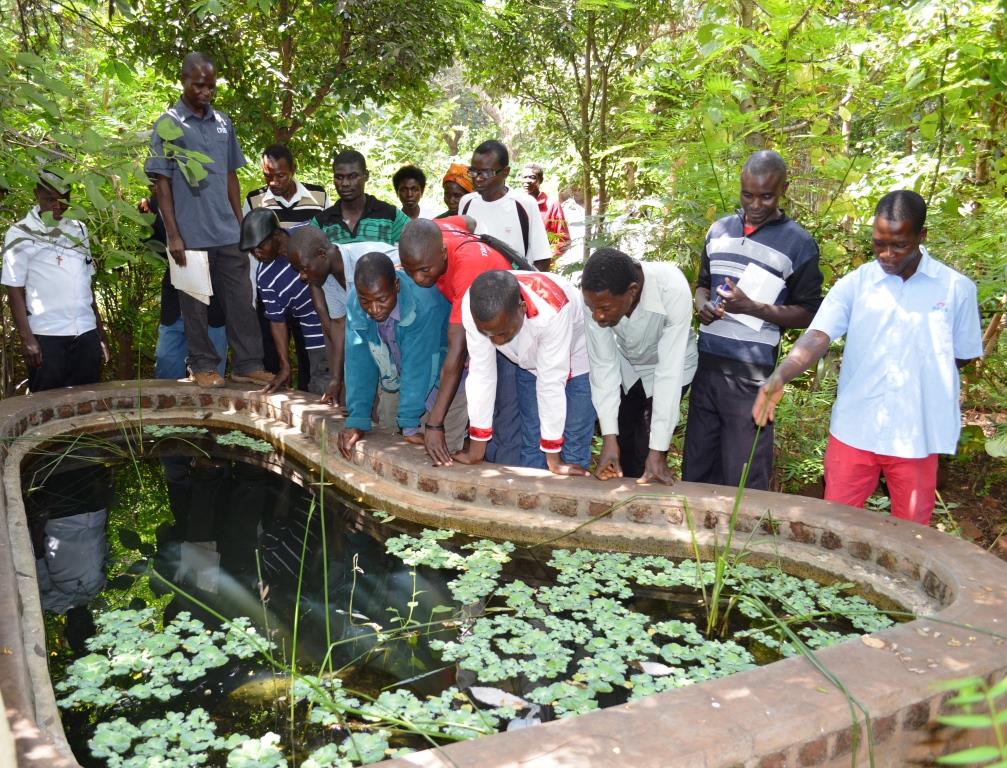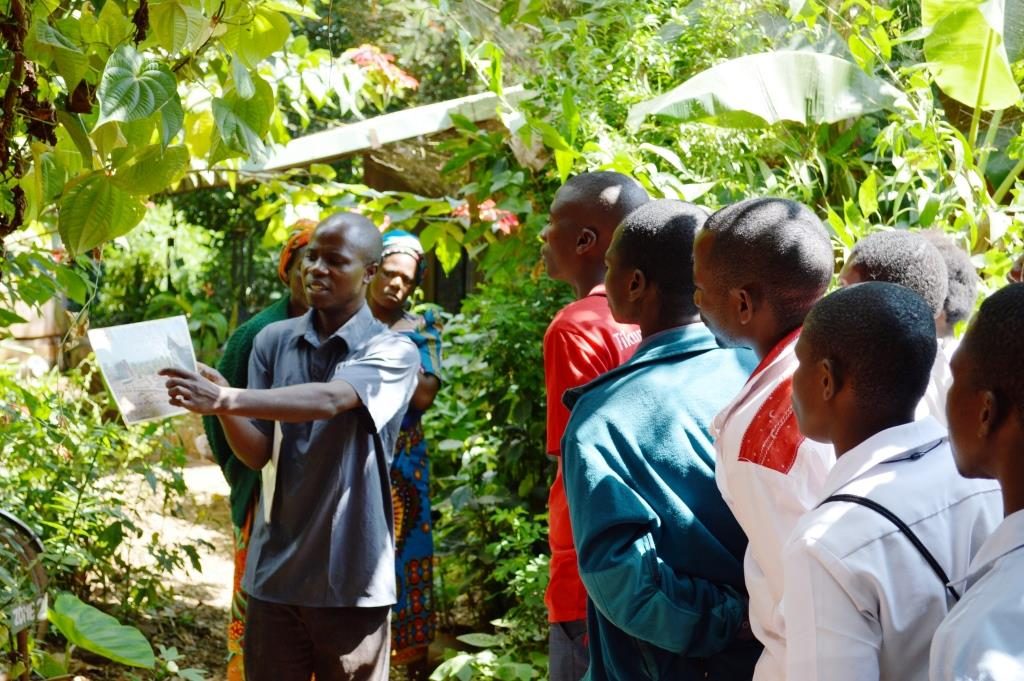
On Friday, May 5th, a group of 21 men and women, including Group Village Headman Kuchombo and 15 Chiefs who represent Lilongwe West under Traditional Authority Kalolo, paid a visit to Never Ending Food to learn more about how Permaculture can help provide sustainable solutions for their communities. Along with the chiefs, this group included teachers and community leaders from various villages.
A couple weeks ago, Never Ending Food was approached by Group Village Headman Kuchombo himself to arrange this visit. This fact alone is such an incredibly positive step forward where many people have become overly-dependent on handouts and have developed a reliance on donor agencies to do things ‘for’ their communities, rather than taking the initiative to be proactive within their own community development. GVH Kuchombo’s initiative to provide learning solution-based learning opportunities for the villages which he represents should be highly commended. During the visit, GVH Kuchombo gave an inspiring speech to the entire group about taking Permaculture ideas back to their communities and implementing them within their various villages to improve health, ensure year-round food security, and help reduce poverty.
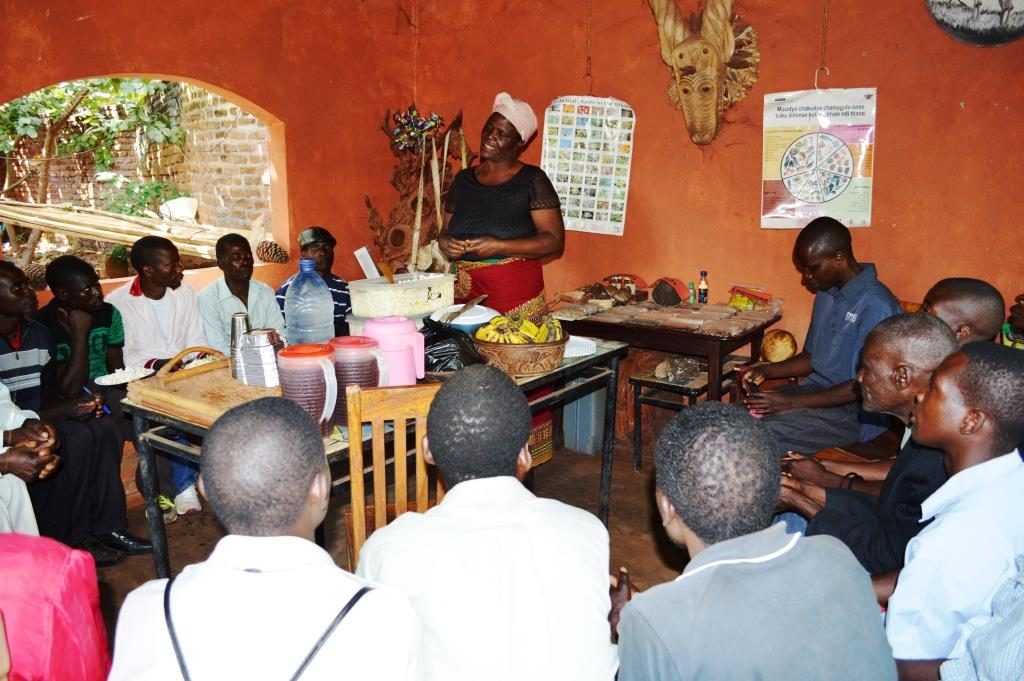
Our Permaculture Manager, Peter Kaniye, did the majority of the teaching in the local language, Chichewa, to ensure that the messages were being fully appreciated and that the group felt comfortable asking all of their questions. One of our local community members, Eferal Kathumba, also helped to prepare and teach about the diversity and importance of the nutritious snack that they ate (juice made from hibiscus, lemons, and mint (all from Never Ending Food’s gardens), bananas, African Horned cucumbers, popcorn, and locally-made cakes).
The participants were taught about feeding the soil through the integration of nitrogen-fixers, worm-farming, composting toilets, liquid manure, and heap composts. We had lessons on Malawi’s six food groups to show the importance of nutritional diversity to help bring an end to Malawi’s unacceptable rates of malnutrition. Peter was able to show technologies for solar drying, paper-briquette making (used similar to charcoal), the use of fuel-efficient stoves, and hand-pressed oil making. There was a nice display of recently harvested crops, including various beans, pumpkins, maize, air potatoes, local yams, and many other foods of Malawi. The group was exposed to methods of organic and diversified crop production (using locally-available and open-pollinated seeds), sustainable soil management, water harvesting, and animal husbandry (including fish farming, rabbit rearing, and bee keeping). They even got a preview of the new sustainable classroom that we’ve been building using rammed-earth and earth-bag techniques (this classroom should be able to accommodate groups of 50-60 people when completed, and is being built without the need for burning bricks—something which has put a great deal of pressure on Malawi’s forests).
Everybody really seemed to appreciate the visit and left inspired and motivated. Let’s hope this translates into action!
